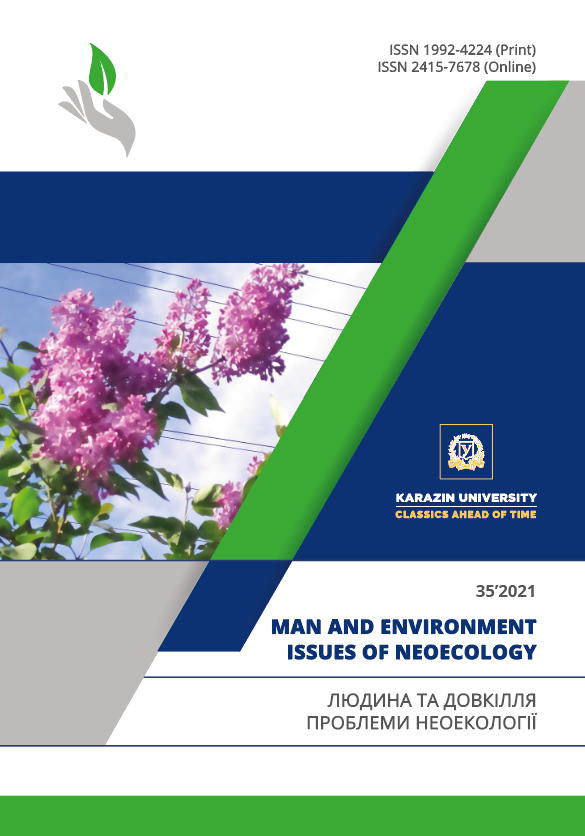Influence of Geology and Relief on the Society Evolution
Abstract
The main aim of this article is to consider the way geological and geomorphological processes on the planet Earth have influenced intellect, language, mastering of tools, social studies and cooperative behaviour, which helped society develop agriculture, live in the cities and build civilization. The formation of society has covered a long and difficult way on the planet Earth.
Today society is regarded as a human being, stipulated by action and communication, a system of social living together, during which a person and his spirituality is formed as a result of a society’s transformation into some kind of its social existence. Man is in the centre of a society, which cannot exist without him. Society is a system of social living together. It originated from nature’s evolution, having acquired its characteristic features from the very beginning. Despite a wide interpretation of nature and society cooperation, we agree that the fundamental correlation of biological and social in our science are considered very simply. The biological is identified as the animal, the geological - as lifeless nature, but social - as human. The formation of ancient civilizations at the junctions of lithospheric plates confirms that the quintessence of inanimate (geological processes) development is precisely the surge of the living - human society. Particularly high concentration of the developed ancient civilizations is found on the Mediterranean-Himalayan-Indonesian seismic belt, where the network of latospheric plates joins. Later, in the process of society's evolution, the influence of the "inanimate" on the quantitative and qualitative characteristics of the "living" is increasingly manifested. It has been proved that the relief as a result of geological factors "work", acts as the essential lever in it. The isolated development of ancient societies is singled out, caused, first of all, by the environment of mountain systems.
Conclusion. We notice that the idea of socio-natural world’s character, the coevolution principle as productive means of cognition and solution to the problem of the society and the Earth planet cooperation acquires an important methodological and world outlook meaning
Downloads
References
Dartnell, L. (2020). How the Earth Shaped the History of Mankind. Translated from Eng. Alexander Astashov. Kyiv: Our format.
Dartnell, L. (2019). Origins: How the Earth Shaped Human History. Bodley Head.
Sonko, S. (2019). Man in Noosphere: Evolution and Further Development. Philosophy and Cosmology, 22, 51-74. https://doi.org/10.29202/phil-cosm/22/5
Harari, Y.N. (2015). Sapiens. A Brief History of Humankind. Vintage.
Harari, Y.N. (2016). The man is smart. History of mankind from past to future. Translate from еng. J. Lebedenko. Kharkiv: Family leisure club.
Harari, Y.N. (2018). 21 lessons for the XXI century. Translated from Eng. O. Demyanchuk. Kyiv: Force Ukraine.
Harari, Y.N. (2018). Homo Deus. Behind the scenes of the future. Translated from еng. O. Demyanchuk. Kyiv: Foss Ukraine.
The phenomenon of socio-natural systems. Worldview - methodological essays: monograph (2009). Kyiv: Publisher PARAPAN.
Vernadsky, V.I. (1944). Soil science. Moscow: Science
Schuchert, Ch. A Dunbar Ch. A .(1931). Textbook of geology, N.Y.
Vernadsky, V.I. (1989). Biosphere and noosphere. Moscow: Science.
Synergetic worldview: scientific and pedagogical aspects: monograph. (2015). Edited by N. V. Crestedlark. Sumy: University Book.
Roimer,Y. (2017). Homo Urbanus. The paradox of evolution. Translated from the Dutch by J. Dovgopoloho. Kyiv: Zhupansky Publishing House.
Kholodny, M.G. (1970). Selected works. Kyiv: Scientific Thought Publishing House
Bookchin M. (1995). The Philosophy of Social Ecology. Essays on Dialectical Naturalism. Montreal, New York: Black Rose Books,
Bookchin, M. (1995). Re-enchanting humanity: A defense of the human spirit against anti-humanism, misanthropy, mysticism, and primitivism. London: Cassell.
Meadows, D., Randers, J., & Meadows, D. (2018). Limits to growth. The 30-Year Update Earthscan: Kyiv: Pabulum.
Maksymenko, N.V., Tararoev, Ja. V., Nazaruk, M. M., & Cherkashyna, N. I. (2020). Philosophy of Science. Dist. Course LSM Moodle, KhKNU. Sert. № 225/2020.
Nazaruk, M. (2019). Philosophy of environment and nature management: monograph. Lviv: Ivan Franko National University of Lviv.
Sonko, S., & Maksymenko, N. (2014). Evolution Of Tillage As The Main Factor Agrolandscapes Planning (Environmental Hopes And Disappointments).Visnyk of V. N. Karazin Kharkiv National University Series «Еcоlogy», 1004, 7-22. Retrieved from https://periodicals.karazin.ua/ecology/article/view/817
Authors reserve the right of attribution for the submitted manuscript, while transferring to the Journal the right to publish the article under the Creative Commons Attribution License 4.0 International (CC BY 4.0). This license allows free distribution of the published work under the condition of proper attribution of the original authors and the initial publication source (i.e. the Journal)
Authors have the right to enter into separate agreements for additional non-exclusive distribution of the work in the form it was published in the Journal (such as publishing the article on the institutional website or as a part of a monograph), provided the original publication in this Journal is properly referenced
The Journal allows and encourages online publication of the manuscripts (such as on personal web pages), even when such a manuscript is still under editorial consideration, since it allows for a productive scientific discussion and better citation dynamics (see The Effect of Open Access).





